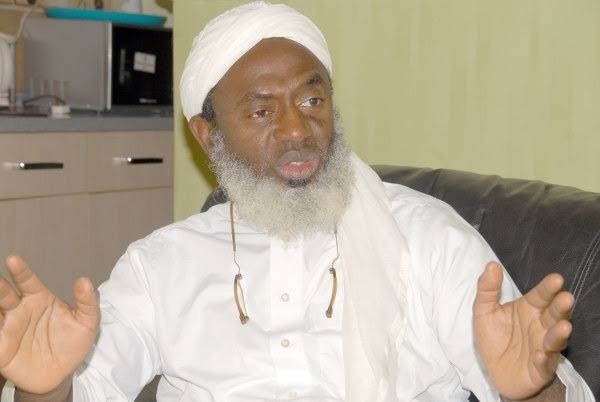Don’t Label Terrorists As Criminals, Islamic Cleric Tells Media, Nigerians
The Islamic cleric has insisted terrorists have a chance at rebirth if treated like other citizens.

Sheikh Ahmad Gumi, a Kaduna-based Islamic cleric, has asked Nigerians not to label terror groups abducting citizens and attacking places in the Northwest and Northcentral regions of the country criminals.
“Castigating and abusing bandits through the media will not address the issue. Government and the clergies need to speak with the bandits and dialogue with them, and they will listen. The government must help them to drop arms and criminalities and become good citizens of Nigeria,” Gumi said Wednesday night on Arise Television News.
“They are ready to put down their weapons; now you are calling them criminals. How do you want them to cooperate? So you have to show them they are Nigerians, that they should not hurt children, be law-abiding. This is the language we want to hear. The press should assist us in getting the boys,” he added.
The cleric has been canvassing amnesty for the terrorists, who have been intensifying their deadly attacks on vulnerable villagers as they operate from their camps in the large swathes of forests straddling Zamfara, Katsina, Kaduna and Niger states.
Gumi has also been moving around and preaching to the terrorists to lay down their arms and embrace peace. Some have reportedly repented, yielding to the cleric’s preaching.
He insisted that the government negotiate with the terrorists rather than declare war on them, promising the terrorists would surrender themselves if they were not labelled criminals in the media.
Under Nigeria’s amended Terrorism (Prevention) Act 2011, killing, kidnapping, illegal possession of firearms, among others, are listed as acts of terrorism in which the terror gangs are complicit.
The United Nations General Assembly 1994, in condemnation of terrorist acts, described terrorism as: “criminal acts intended or calculated to provoke a state of terror in the public, a group of persons or particular persons for political purposes are in any circumstance unjustifiable, whatever the considerations of a political, philosophical, ideological, racial, ethnic, religious or any other nature that may be invoked to justify them.”
Though the terrorists, Gumi said, have committed a crime by killing innocent Nigerians, “they justify their actions by the crime that the community committed against them.”
Their evolution has been said to stem from violent conflicts between nomadic herders and sedentary farmer communities over land grazing rights and livestock theft.
The ‘bandits’ are also said to have a strong link with Boko Haram insurgents.
According to the Global Index on Terrorism 2020, Nigeria ranked third among 10 countries suffering the most terrorist activities due to their proximity to ongoing conflicts. The country fell behind Iraq and Afghanistan, which have been experiencing decades-old Taliban attacks.
“Boko Haram, Nigeria’s deadliest terrorist group, recorded an increase in terrorist activity mainly targeted at civilians by 25 per cent from the prior year. Additionally, Fulani extremists were responsible for 26 per cent of terror-related deaths in Nigeria at 325 fatalities,” the Institute of Economics and Peace (IEP), a leading think tank on global terrorism trends, said in the report.
Gumi said the military operations against the terrorists should be applied legally and not by extra-judicial killings through the use of government machinery to attack the terrorists.
He insisted on negotiation with the terrorists by the government.
“Government should, therefore, understand the grievances of the bandits and tell them to go and sin no more,” Gumi said.
Finding lasting solutions to the nefarious activities of the terror gangs has become a national debate.
Professor Wole Soyinka, Nobel Laureate, has warned against negotiating with bandits, saying it is impossible to appease evil.
Support Our Journalism
There are millions of ordinary people affected by conflict in Africa whose stories are missing in the mainstream media. HumAngle is determined to tell those challenging and under-reported stories, hoping that the people impacted by these conflicts will find the safety and security they deserve.
To ensure that we continue to provide public service coverage, we have a small favour to ask you. We want you to be part of our journalistic endeavour by contributing a token to us.
Your donation will further promote a robust, free, and independent media.
Donate HereStay Closer To The Stories That Matter




